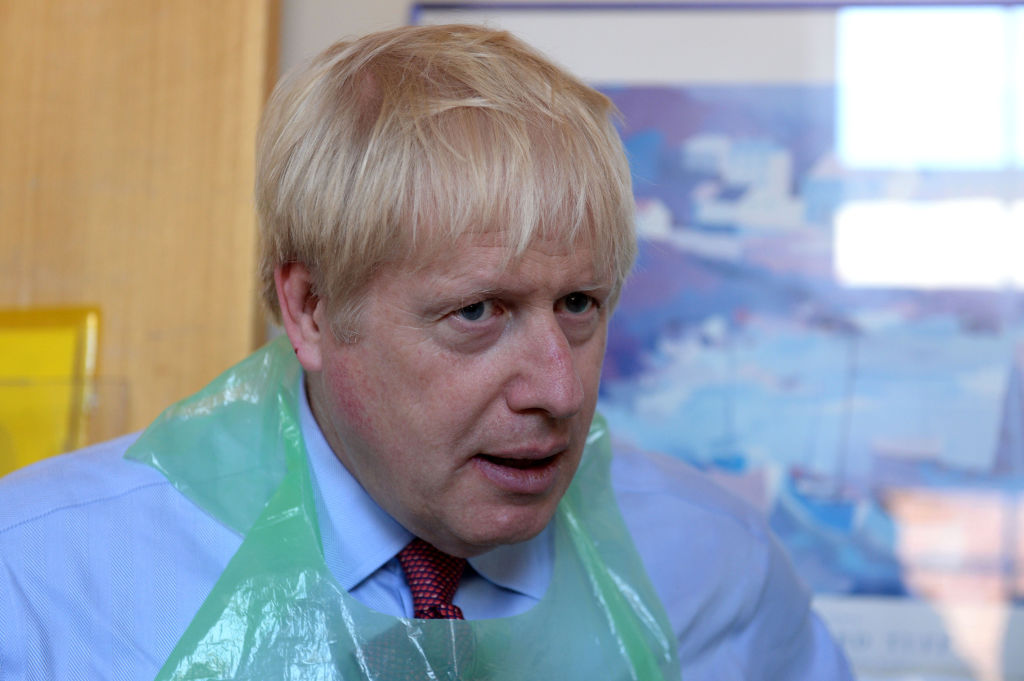“Left behind” became the phrase of choice to describe places like this, as well as fading seaside resorts such as Blackpool, which has been hit badly by a decline in domestic tourism. Boris Johnson cannot afford to ignore these towns if he is serious about achieving a healthy working majority in Parliament.
So what can be done to help these towns and win over disaffected voters? These places all have distinct and important senses of identity. But their problems are similar and have been left unaddressed for years. In too many cases, jobs that had high levels of dignity, skill and security have been replaced with low skill, low productivity and insecure work. This is a result of many of the skilled jobs shifting to major cities, and particularly to the south east. The fact that the British economy has deindustrialised to a greater extent than any major rival has had a more detrimental impact upon towns than on other parts of the country. This has left all too many of them economically hollowed out.Transport links and infrastructure in many of our towns remain diabolical and a consistent focus on connecting cities and ignoring towns has made the problem worse. Consett, for example, despite having a population of 25,000, has no train link and has to rely on expensive and often unreliable bus services. Many towns that are lucky enough to have train stations often have infrequent services and antiquated trains.
A myopic obsession with university expansion has also created the situation where talented young people who could be the key to turning struggling towns around are actively encouraged to leave their home town behind. A Centre for Cities report found that Doncaster, Wakefield and Wigan lose over 5,000 students to university cities every year. In most cases, these students never return to their home towns.
At the same time, town centres have become diminished, as have other community spaces. Towns tend to have older populations, fewer graduates, fewer people with skills, and less access to capital than cities. Little surprise that 68 per cent of people living in towns say that politicians “don’t care about my area”.
Whereas the large, metropolitan cities tended to lean towards Remain, the surrounding towns were overwhelmingly in favour of leaving the EU. Just over half of voters in Newcastle voted to stay, whereas 57 per cent of voters in Gateshead voted to Leave, as did 61 per cent of voters in Sunderland and 65 per cent of voters in Middlesbrough. Remain received 60 per cent of the vote in Manchester and 50 per cent in Leeds. By contrast, nearby towns Wigan and Oldham both recorded Leave votes in excess of 60 per cent.
Just as these towns made the difference in the Brexit referendum, the forgotten towns of England will play a fundamental role in deciding the result of the next election. Towns such as Mansfield and Middlesbrough already moved into the Tory column at the last election – this could mark the beginning of a substantial realignment. Long-neglected towns, such as Bishop Auckland, Dudley, Barrow and Blackpool are high up on the Tory target list for the next election and once rock-solid Labour towns are now becoming competitive. Even Consett, once solidly red, is showing signs of falling out of love with Labour.
Whereas many of these forgotten towns once had an emotional attachment to the Labour party, that connection has been diminishing for years as Labour has become a middle-class, city-based party. The Brexit referendum loosened those ties still further, but lifelong Eurosceptic, Jeremy Corbyn, managed to keep some of these voters on board by promising to respect the result of the referendum. Corbyn’s recent capitulation in favour of an anti-Brexit stance means that Conservatives have a golden opportunity to paint these towns blue.
If the Tory party offers a bold agenda to transform these towns, they could redraw the political map. Boris Johnson’s Government is at least showing it gets this. The PM’s plan to offer discounted homes to first-time local buyers near to where they grow up could prevent the hollowing out of towns. But he shouldn’t stop there.
In Little Platoons, I set out how the party can renew local economies, revive high streets and re-empower local communities. Such an agenda includes a substantial programme of national reconstruction to ensure that our towns have world class infrastructure and transport links.
There should be a sustained programme of devolution to left-behind towns, with the power to create prosperity hubs and do whatever it takes – including lowering and removing taxes altogether on industrial investment – to turn round long-suffering local economies. An effort should be made to encourage investment to reindustrialise some of our forgotten towns. An education revolution that places vocational centres of excellence in our towns is also badly needed.
Helping our long neglected towns to achieve their considerable potential would be a substantial and important achievement in itself. Conservatives would be moving to genuinely create One Nation and, in doing so, they could bring about a lasting political realignment. They would also be richly rewarded at the ballot box for years to come.
Little Platoons: How a revived One Nation can empower England’s forgotten towns and redraw the political map, is released on Tuesday






Comments